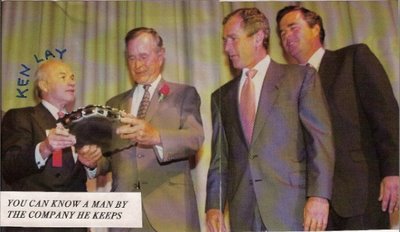 JIMMY STEWART? JUST ANOTHER BUSH-LEAGUE CONSERVATIVE?
JIMMY STEWART? JUST ANOTHER BUSH-LEAGUE CONSERVATIVE?We all know that Jimmy Stewart was a conservative. In fact he and Henry Fonda, a liberal friend, almost came to blows over their differences and decided never to talk politics again when together. They were lifelong friends so they must have been true to their agreement. I liked most of Stewart's movies myself.
Stewart was also a war hero. In one of my past blogs, I put in a statement by Andy Rooney about what a standup sort of officer Stewart was. So the following passage may trouble some of Stewart's fans, yet I also think that conservatives are awfully good about speaking platitudes while, when the fat is burning in their own skillets, they fall silent and try to hide the smoke.
I want to add that this biography about Stewart,
Pieces of Time: The Life of James Stewart, by Gary Fishgall, has been detailed and full of the usual praise when a biographer genuinely likes his subject. So if Fishgall put in the detail, he must consider it to have some validity.
Pieces of Time is not a typical tell all book, certainly not like the negative book I just read about Paul Newman in which every other page was full of negative comments.
[OPEN QUOTE] "I liked taking Marlene out to dinner and to dance back in the days of Destry," Stewart would later recall, adding that they "dated quite a few times, which was fairly romantic." Jim put an innocent spin on the affair, but it was, in fact, intense. Remarque, who followed Dietrich to Hollywood, noted in his diary that the actress confessed she had slept with her costar from the outset of their relationship. Quoting her, Remarque wrote, "It was a dream: it had been magical. For him [Stewart], too."
But Marlene was far more involved than Jimmy. According to Remarque, "She never knew from one week to the next [where she stood with him]. He had never talked about love, but told her he was not in love, couldn't afford it." Then, she told the writer, she became pregnant with Stewart's child. Remarque noted in his diary that she wanted to have the baby, but that Jim insisted she have an abortion. She acceded to his wishes, traveling to New York for the then illegal operation. Stewart, the writer noted, neither went East with Marlene nor monitored her condition by phone. "She was not even angry with him," he added. "She blamed herself for getting pregnant."
Beyond Remarque's diary, Steven Bach wrote in his 1992 biography of Dietrich that "Maria [Riva] told people who would listen that Stewart had made Marlene pregnant during the making of Destry, that Marlene confronted him with the fact on a dance floor in Hollywood, that Stewart (unmarried) walked away without a word, and that Marlene (married) did what women do who don't want unexpected souvenirs of romance. Curiously, in her own book about her mother, hardly a flattering portrait, Riva wrote virtually nothing about Dietrich's relationship with Stewart and avoided the pregnancy issue entirely.
Given Stewart's squeaky-clean image and conservative values, some might find such a story difficult to accept, but it is credible. If there was a flaw in Jim's character, it was that he was not a standup guy. Yes, he believed in the sanctity of the family, and certainly, in later years, he was antiabortion but he clung to notions without reflection; he simply accepted them. But fight for them? Take risks for them? Not likely. The fact is that, aside from his military service during World War II, Stewart never fought hard for anything. Career, money, women, friends, they all came pretty easily. As a rather affable, unassertive person, he preferred to sit back and let good things come his way. When something untoward did happen, such as Dietrich's pregnancy, he would have been inclined to ignore the whole matter, to drive it from his mind. If one doesn't think about something, doesn't do anything about it, it arguably didn't happen. [Can I say here to think of George Bush? My comment, not Gary Fishgall's.]
In later years, Dietrich remembered Stewart as something of a vacuous character. In her 1987 autobiography, she chose to ignore their personal relationship entirely—it is a very sanitized book—but she observed "obviously, his sense of humor was poorly developed. He performed his way throughout his life and became very rich and very famous." She also noted, "The only really admirable actor with whom I worked was Spencer Tracy." [CLOSE QUOTE] (p.139)
There it is. All the nasty details. I don't mind conservatives having values they want to defend, but this duplicity on their part is troubling. Just today I was thinking about the Clinton impeachment, how atrocious that preceding was, and no one has come forward to impeach Big Brother George! The hypocrisy reeks! There's no comparison between what Clinton was impeached for and what Bush could be thought guilty of. At least an impeachment proceeding would get some details out in the open.
Photo above in this posting is another picture of a landscape detail southwest of Spokane, Washington.




















